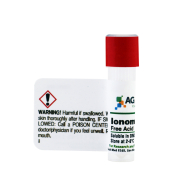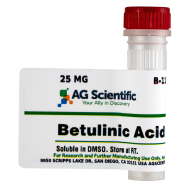For nearly 30 years, HIV (human immunodeficiency virus) and AIDS (acquired immunodeficiency syndrome) has been shrouded in myths and misconceptions. In some cases, these misconceptions have prompted the very behaviors that cause more people to become HIV-positive. Although various unanswered questions about HIV remain, researchers have learned a great deal that debunks the ever so prevalent myths surrounding HIV and AIDS. Here are the top HIV myths along with the facts to dispute them.
For nearly 30 years, HIV (human immunodeficiency virus) and AIDS (acquired immunodeficiency syndrome) has been shrouded in myths and misconceptions. In some cases, these misconceptions have prompted the very behaviors that cause more people to become HIV-positive. Although various unanswered questions about HIV remain, researchers have learned a great deal that debunks the ever so prevalent myths surrounding HIV and AIDS. Here are the top HIV myths along with the facts to dispute them.
| HIV/AIDS is a death sentence. |
| In the 1980s and early 1990s, there were little to no treatment available, and thus the AIDS death rate was very high. Now, over thirty medications have been approved by the U.S. government to fight HIV and AIDS, with many more in development. |
| If I take birth control, I won't get HIV. |
| There are many tools in what we in the field call the prevention tool belt that can help prevent the transmission of HIV, but birth control is not one of them. While birth control does not fight HIV, there are two other pills that can help fight HIV. PrEP (pre-exposure prophylaxis), a once-a-day pill that is taken to prevent HIV infection, and PEP (post-exposure prophylaxis), which is taken after exposure to HIV to prevent infection, are both preventative measures in the form of pills. |
| I heard you can get HIV through kissing, from drinking out of the same cup as someone with HIV, or by sharing a plate with someone who has HIV. |
| HIV transmission can only happen a couple of ways, with the two most common being unprotected sex and sharing needles. For HIV infection to occur, you need two things: a transmission fluid (semen, pre-ejaculate, breastmilk, vaginal fluids, or blood) and a port of entry (mouth, vagina, anus, veins). There has never been a documented case of infection of HIV from saliva. |
| Women who are HIV positive can't and shouldn't have babies. |
| Though HIV can be transmitted from mother to child, it is completely possible and completely normal for positive mothers to give birth to happy, healthy babies. There a number of options available for HIV-positive women looking to have children. |
| You can have full-blown AIDS. |
| Let's just back up and go over some basics for a minute: HIV is a virus it stands for Human Immunodeficiency Virus. AIDS stands for Acquired Immune Deficiency Syndrome and is a diagnosis that is given to someone with HIV when one of two things happen: the white blood cell count is less than 200 white blood cells (also known as CD4 cells) or if you get an opportunistic infection. You cannot have full-blown AIDS. You either have an AIDS diagnosis or do not. |
| It's okay to have unprotected sex if you and your partner are both positive. |
| Many people are unaware of HIV superinfection, which happens when an HIV-positive person is infected by a second strain of HIV. HIV can evolve differently in each persons body; if it mutates, a different strain can emerge. Using condoms and taking HIV medication helps keep this worry at bay. |
| I can't get HIV. It's a gay/black/drug users/ [insert community here] disease. |
| HIV can happen to anyone, even if you don't think you're at risk. Some people were happily married when infected. Some people were diagnosed much older and face living their 50s with HIV. It's important to know that no matter how healthy or how good someone looks, you should yourself. |
| HIV/AIDS is a chronic manageable disease just like diabetes! |
| Let's get this straight with treatment, HIV/AIDS is a chronic manageable disease. However, unlike HIV/AIDS, having diabetes does not have nearly as much stigma attached to it. HIV stigma is any feeling of disgrace/shame/dirtiness associated with someone who is HIV positive. People with HIV are often met with violence, legal action, job loss, betrayal from former partners and more. |
| I heard there's a cure out there that's being withheld. |
| Now more than ever, HIV cure chatter is starting to bring hope to a lot of people. Though it is good to talk about the HIV cure, we have to realize that that is something that will be solved in a laboratory, and there's a lot to do on the ground for those living with HIV or at-risk for infection. There are hundreds of doctors looking into an HIV cure, and they're not working for something that already exists! |
| You can use alternative medicines to treat HIV exclusively. |
| Many people do treat symptoms of HIV with alternative medicines HIV medicines can have plenty of side effects. But to use alternative medicine exclusively can be dangerous. |
|
Other top lists:
More information on Myths about HIV/AIDS
Explore other publications and websites
Connect with other organizations
AG HIV-RELATED PRODUCTS:


